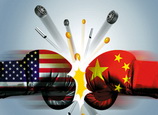
It will measure activity in offshore yuan business in Hong Kong, London and Singapore — three cities aiming to achieve offshore yuan center status — and cover four key areas: yuan deposits, bonds and certificate of deposits, trade settlement and other international payments, and foreign exchange, the bank said.
According to the index, the seven-fold increase in offshore yuan business came between December 2010 and September 2012.
The survey results revealed that around 60 percent of respondents said they are using, or will be using yuan-denominated hedging products, based on the continuous strengthening of the currency.
At the same time, 36 percent of respondents said they were using yuan for trade settlements, and another 18 percent showed interest in adopting the yuan in future trade settlements, as "a higher share of existing users appreciate the improvement in timeliness or are doing so at the request of onshore counterparts".
Marios Maratheftis, Standard Chartered global head of macro research, said the mounting use of offshore yuan in global trade settlements is crucial to the currency's ongoing internationalization.
"The yuan is on an irreversible journey to becoming a major international currency, which will play a substantial role in international trade and central bank reserves," he said.
The survey showed that existing offshore yuan users are more ready to expand their use than non-users, and nearly half say they may start to use offshore yuan products they are not currently using, in the next six months.
 |  |














 Heavy snowstorm wreaks havoc in NE China
Heavy snowstorm wreaks havoc in NE China


![]()
